Best VPN for Gaming: 7 Picks for Fewer Rage Quits in 2025
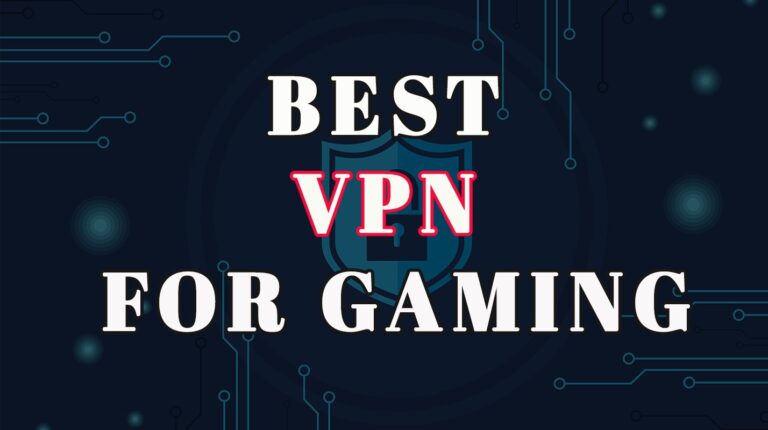
The best VPN for gaming gives you so much more than just sheer speed. It’s about staying ahead of lag, DDoS attacks, and region locks.
I’ve tested dozens over the years, from sweaty Warzone sessions to MMO grind marathons. Some helped. Most didn’t. But the good ones? They’re fast, stable, and dead simple to use – and I’ve lined up the top 7 right here.
I’ll cover what makes a great virtual private network for gaming, how to pick one that fits your setup, and why it’s not just for competitive players. Want smoother matches, early access, and better pings? Keep reading.
Our Top Picks for Gaming VPN
Most VPNs promise speed and security – but when you’re mid-match and the ping spikes, promises don’t mean much. That’s why I’ve narrowed it down to the top three options that actually work for gamers. These are not only fast but also consistent, secure, and built to handle everything from competitive FPS games to region-locked JRPGs.
- NordVPN – The most reliable service in my tests. It’s incredibly fast, which makes a real difference in twitchy shooters and fighting games. Threat protection and heavy encryption keep your connection safe, while its global network means you can hop into lobbies around the world without lag.
- Surfshark – It delivers impressive performance at a low price, and it covers unlimited devices. That makes it perfect for shared setups or multi-platform gamers. I’ve used it across PC, PS5, and even my phone without issues. Speed holds up well, and the CleanWeb feature blocks ads and trackers automatically.
- Norton 360 – If you’re looking for an all-in-one setup, Norton 360 hits the mark. The VPN is truly solid, and while its speed might be just a little bit lacking, its reliability more than makes up for it. What sets it apart is the added security suite: antivirus, dark web monitoring, and more, all in one subscription.
I chose these based on real-world gaming tests, not lab benchmarks. Speed, stability, VPN server locations, security, and DDoS protection were key. If a VPN couldn’t handle hours of gaming without drops or lag, it didn’t make the cut.
Jump to:
Best VPN for Gaming: Top 7 That Passed All The Tests
Here’s where I break down the VPNs that actually impressed me. I tested each one while gaming – not just speed tests, but real matches, on real connections. Some were great across the board. Others had quirks. But overall, you’ll definitely find your best VPN for gaming below.
1. NordVPN [The Fastest VPN for Secure Gaming & Global Access]
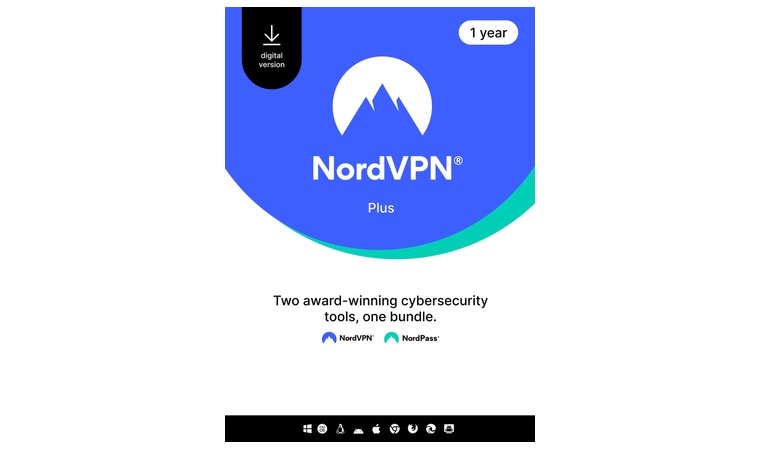
| Servers | Speed | Simultaneous connections | Price (monthly subscription) |
|---|---|---|---|
| 7,400+ servers in 118 countries | Around 300 Mbps on average with a 303 Mbps benchmark | 10 | $12.99/month |
NordVPN is the one I always come back to. It’s the fastest VPN app I’ve tested, period. Whether I was running an iconic FPS game like Warzone, raiding in Final Fantasy XIV, or hopping regions for early releases on Steam, it just didn’t choke. Speeds were high, ping kept low, and I never felt like I was playing through a tunnel.
The magic is mostly tied to NordLynx, Nord’s custom-built protocol based on WireGuard. It keeps everything encrypted without killing performance. I still saw a slight bump in ping compared to a raw connection, but it was consistently low enough to play Call of Duty, Overwatch, and Street Fighter 6 without stutters or disconnects. It’s not magic, but it’s the closest I’ve seen to a “set it and forget it” VPN for gaming.
Stick to NordLynx unless you have a specific reason to switch (obfuscation to hide your VPN traffic, for example). It was the fastest option in almost every test I ran.
Server choice is top-tier. I jumped into lobbies in Japan, Brazil, and the US West Coast without any noticeable rubber-banding or matchmaking issues. And if you’re into co-op LAN-style setups, Meshnet is a wild bonus. It lets you link devices securely like you’re on the same network, perfect for private Minecraft servers or emulated retro parties.
Security is absolutely bulletproof. You’ll be protected from VPN drops, data leaks, and even things like malware and DDoS attacks. That’s especially useful for ranked play, where some salty players will try anything.
And yeah, the app’s clean, easy to use, and works across everything I game on – PC, Steam Deck, Xbox (via router), you name it. After weeks of testing, I gave NordVPN the title of one of the best VPNs for Warzone as well.
| Pros | Cons |
|---|---|
| ✅ Lightning-fast NordLynx protocol delivers smooth gameplay, even on distant servers ✅ Low pings on global servers for lag-free gaming in faraway servers ✅ Strong DDoS protection for ranked gaming makes sure you complete every match ✅ Beginner-friendly UI lets you set it up in minutes without any tech skills ✅ Unparalleled geo-unblocking for accessing region-exclusive games and lobbies | ❌ Browser-based login gets annoying after a while |
Why I chose NordVPN:
NordVPN is blisteringly fast, gamer-proof stable, and the safest VPN out there. From sweaty PvP to cross-region JRPG sessions, it made everything smoother for me, without ever getting in my way.
2. Surfshark [Best Value VPN for Unlimited Devices & Seamless Gaming]

| Servers | Speed | Simultaneous connections | Price (monthly subscription) |
|---|---|---|---|
| 3,200+ servers in 100 countries | Around 295 Mbps on average with a 303 Mbps benchmark | Unlimited simultaneous connections | $15.45/month |
Budget VPNs usually have to cut corners to make things work, but Surfshark held up across long sessions of some great PC games like Rocket League, Elden Ring, and Apex Legends. It felt plenty fast – enough for stable, lag-free matches even when connected to distant servers.
Gaming aside, it’s packed with smart features. CleanWeb blocks ads and trackers, which means fewer distractions and slightly faster load times in browser-heavy launchers like Epic or Riot. Its Bypasser split tunneling tool was great for routing only my game traffic through the VPN – helpful when I needed more speed for downloads elsewhere.
Use Bypasser (split tunneling) to route only your game through the VPN while keeping the rest of your connection at full speed. It’s perfect if you’re downloading patches or watching streams in the background.
WireGuard is the default protocol here, and it’s just as fast as you’d imagine. Ping went up slightly during peak hours, but the connection was stable and predictable. It’s the kind of VPN you forget is running, and that’s always a good thing.
Device management is simple, and the interface is clean. No surprise charges, no weird speed caps, no nonsense. And the real kicker? Unlimited devices. I ran it on my PC, Steam Deck, phone, and even a smart TV without any throttling or disconnects. It’s solid on PC and also of the best VPN for Xbox. And PS, for that matter.
| Pros | Cons |
|---|---|
| ✅ Unlimited connections are perfect for multi-platform gamers and big households ✅ CleanWeb keeps your gaming launchers and browsers clean ✅ WireGuard protocol delivers strong speeds for stable matches and quick region switches ✅ Budget-friendly long-term pricing – costs less than a skin bundle ✅ Works reliably with region-locked content, which is great for early access or global matchmaking | ❌ Customer support answers can be a bit of a hit and miss, but I usually got what I needed in the end |
Why I chose Surfshark:
Unlimited devices, low price, and solid gaming performance? Surfshark is the best value option out there, especially if you game on multiple platforms or share with others. It’s the “just works” VPN anybody can afford.
3. Norton 360 [Comprehensive Security Suite with Integrated Gaming VPN]
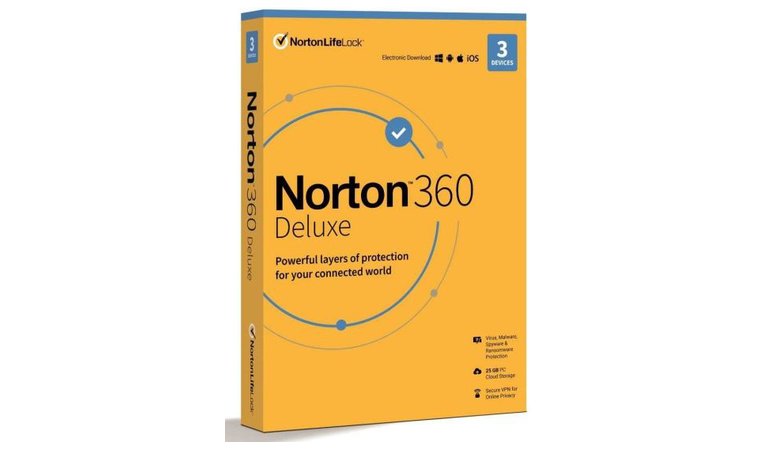
| Servers | Speed | Simultaneous connections | Price (annual subscription) |
|---|---|---|---|
| Not disclosed | Around 157 Mbps on average with a 303 Mbps benchmark | Up to 10, depending on your plan | $39.99/year |
Norton 360 isn’t the first name most gamers think of when it comes to VPNs, but its integrated Secure VPN really surprised me. It’s bundled with a full security suite, but the VPN alone held up really well during my gaming sessions. I wouldn’t take it into ranked Apex or Valorant matches, but for story-driven titles, popular MMORPG games, or anything turn-based? Totally fine.
Speeds were consistent across North American and European servers. Ping was higher than Nord or Surfshark, but nothing game-breaking. I used it during a few Diablo IV nights and Genshin Impact dailies, and it felt smooth the whole time. The real benefit here is simplicity. Once you install Norton, the VPN just runs in the background. No need for extra tools or configuration.
You can set Norton’s VPN to auto-enable on unsecured networks, which is great for portable gaming on hotel or café Wi-Fi.
The security features are where this shines. You’re getting antivirus, dark web monitoring, password management, cloud backup, and parental controls alongside the VPN – and it all plays nicely together. It’s the best pick if you want peace of mind for your whole system and solid gaming protection without juggling multiple subscriptions.
| Pros | Cons |
|---|---|
| ✅ Full security suite with a built-in VPN – no need for separate apps or accounts ✅ Stable speeds for casual and semi-competitive gaming ✅ Strong system-wide protection is ideal for gamers who also need antivirus, password managers, and more ✅ It can protect all your devices and platforms ✅ Simple setup and use are ideal for non-techy users and casual gamers | ❌ No router support means you’ll need to connect your console to your PC via Ethernet to use the VPN |
Why I chose Norton 360:
It’s not specifically built just for gaming, but it’s rock-solid for gamers who want more than just a VPN. If you’re looking to simplify your digital life with one tool that protects everything, Norton 360 delivers.
4. F-Secure [User-Friendly Security with Gaming-Optimized Protection]
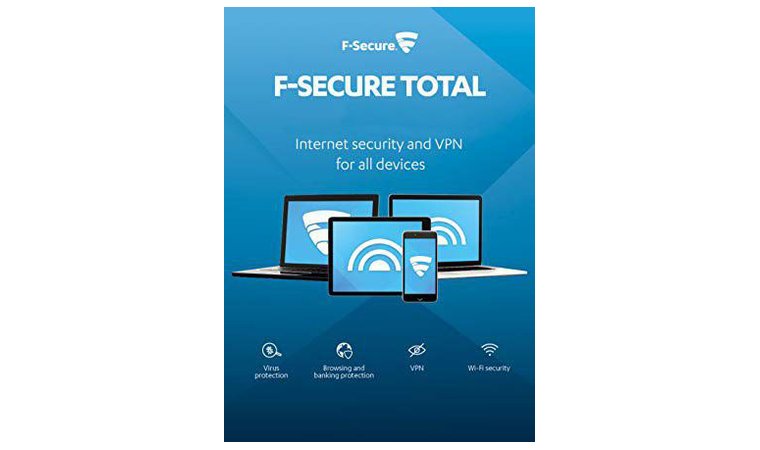
| Servers | Speed | Simultaneous connections | Price (annual subscription) |
|---|---|---|---|
| Around 100 servers in 20+ countries | Around 136 Mbps on average with a 303 Mbps benchmark | Up to 10, depending on your plan | $39.99/year |
F‑Secure is not on the same level as NordVPN or Surfshark, but it quietly does a lot right. Its VPN, included in F‑Secure Total, is built on WireGuard, and the performance was actually decent.
I tested it with League of Legends and Monster Hunter Rise – and it dished out smooth gameplay for the most part. That said, it kept a bit over 30% of my original speed, so I wouldn’t recommend it if you’re on a super-slow network.
The app is clean, lightweight, and easy to navigate. You don’t get a bunch of menus or cluttered options, just connect, pick a server, and go. And for casual gamers or anyone new to VPNs, that simplicity goes a long way.
Enable “automatic start” and “auto-connect on untrusted networks.” It makes sure the VPN is always on when gaming on hotel, dorm, or public Wi-Fi.
F‑Secure also adds a nice layer of system-wide protection. You get tools like browsing protection, tracking blockers, and automatic Wi-Fi security prompts. It’s not as beefy as Norton’s suite, but it’s well-balanced for people who want some security without overkill.
It’s not made for competitive esports play or deep geo-hopping. It doesn’t exactly have a large server network, and you won’t find niche features like Meshnet or split tunneling. But if you want a no-fuss VPN that plays nice with games, it nails the basics.
| Pros | Cons |
|---|---|
| ✅ Decent speeds with WireGuard. Good enough for smooth casual gaming ✅ Simple, clean interface is perfect for VPN beginners ✅ Extras like browsing protection and tracking blockers are helpful for everyday online safety ✅ Auto-connect on public Wi-Fi keeps you protected when gaming away from home | ❌ Smaller server network than major competitors, but you still have plenty of options ❌ Basic VPN only, no advanced gaming features like DDoS protection and split tunneling |
Why I chose F-Secure:
It’s a clean, fast, and gamer-friendly VPN wrapped in a security suite that doesn’t overwhelm. If you want simple, smooth protection with zero distractions, F‑Secure quietly does the job.
5. ExpressVPN [Premium User-Friendly VPN for High-Speed, Secure Gaming]
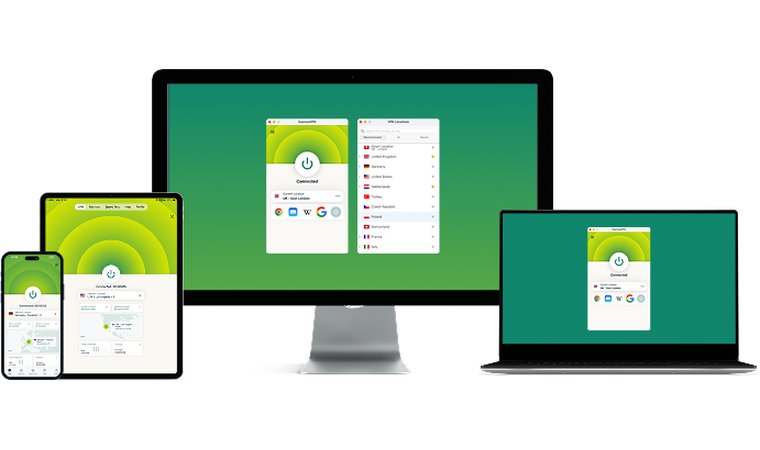
| Servers | Speed | Simultaneous connections | Price (monthly subscription) |
|---|---|---|---|
| 3,000+ servers in 105 countries | Around 267 Mbps on average with a 303 Mbps benchmark | 8 | $12.99/month |
ExpressVPN is fast, simple, and beginner-friendly – a great combo if you just want to game without fuss. It doesn’t overwhelm you with features, but what’s here works really well. The app is clean, connects in seconds, and the Smart Location feature usually picks solid servers with low ping.
I tested it across a few major Warzone hubs, like London, New York, and Tokyo, and I got enough speed for multiplayer and voice chat with no hiccups.
Lightway, its custom protocol, keeps things fast and responsive, especially for mobile gaming. You won’t get advanced gamer tools like Surfshark’s GPS spoofing or Nord’s Meshnet, but if you just want a VPN that gets out of the way and keeps your connection sharp, ExpressVPN delivers.
Use the Lightway protocol if you’re on a mobile hotspot since it uses less battery and connects faster than OpenVPN or IKEv2.
It’s a bit pricier than others and doesn’t have a ton of customization, but it’s one of the easiest VPNs to start using. That simplicity is a great benefit if you’re just starting out with VPNs for gaming.
| Pros | Cons |
|---|---|
| ✅ Lightway protocol is fast enough for lag-free gaming ✅ Excellent geo-unblocking capabilities and easy server switching ✅ Extremely easy to use – ideal for VPN beginners ✅ It can protect all your devices and platforms | ❌ Only 8 simultaneous connections, which can feel tight for larger households |
Why I chose ExpressVPN:
I’ve always appreciated tools that just work, and that’s exactly what I got with ExpressVPN. It’s not packed with gaming extras, but it nails the basics: stable servers, smooth speeds, and a simple interface that doesn’t waste your time.
6. WireGuard [The Modern, Lightweight Protocol for Fast VPN Connections]
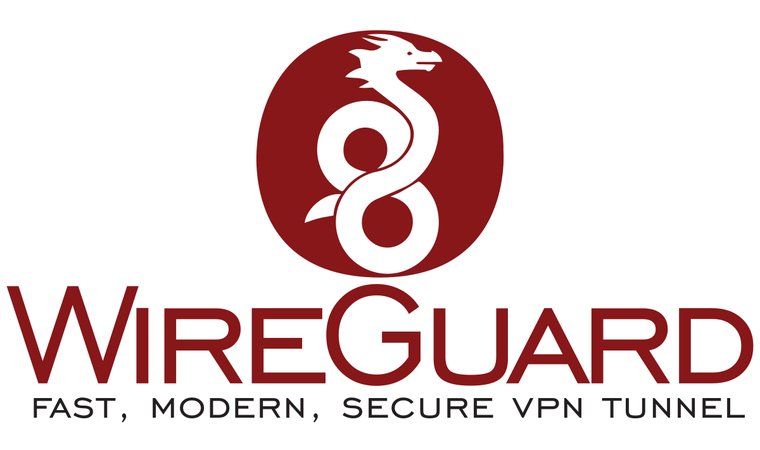
| Servers | Speed | Simultaneous connections | Price (monthly subscription) |
|---|---|---|---|
| Depends on your setup (self-hosted) | Depends on your setup (potentially up to 1 Gbps+) | Unlimited (you control the access) | Free (plus server hosting fee) |
You don’t actually have to pay for a full VPN if you’re comfortable getting your hands dirty. WireGuard is an open-source, free VPN protocol that you can install and run manually. And yeah, it works great for gaming if you know what you’re doing.
You’ll have to set up your own server or use a third-party provider that supports it, but the speed and low overhead make it a favorite among power users. Its lean code delivers amazing speeds, faster connections, and less lag.
I’ve tested WireGuard both through VPN providers and as a standalone setup, and it’s shockingly fast. It doesn’t do much else, though (no kill switch, no auto-rotation, no fancy UI), but if all you want is raw performance with minimal latency, it’s hard to beat. That said, this isn’t a plug-and-play solution – it’s more like building your own VPN toolkit.
| Pros | Cons |
|---|---|
| ✅ Totally free if you self-host. You can install and run it without paying a cent ✅ Extremely low latency – perfect for fast-paced, timing-sensitive games ✅ Lightweight and minimal (no bloat, no unnecessary features, just performance) | ❌ No built-in UI or security tools (you’re responsible for setup, configs, and maintenance) ❌ Not beginner-friendly (requires some networking know-how to do right) ❌ Lacks extras like location spoofing (no region-restricted lobbies with vanilla WireGuard) |
Why I chose WireGuard:
I wanted to see how far I could push my speeds without any middlemen. WireGuard gave me the lowest ping of any setup I tested, but only after some trial and error. If you like total control and don’t mind tinkering, it’s a great no-frills option. This one is only for true tinkerers, though. Most users will be better off with a VPN service like Nord or Surfshark.
7. Proton VPN [Privacy-Focused VPN with Accelerated Gaming Speeds]
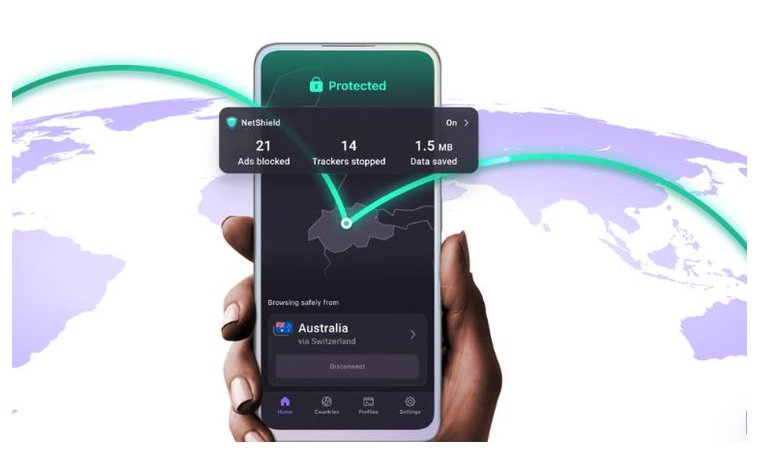
| Servers | Speed | Simultaneous connections | Price (monthly subscription) |
|---|---|---|---|
| 11,000+ servers in 120+ countries | Around 248 Mbps on average with a 303 Mbps benchmark | 10 | $9.99/month |
I tested Proton VPN mostly with Fortnite, Destiny 2, and Rocket League. I got steady speeds and low enough ping for smooth gameplay. The Secure Core feature is a neat bonus – it routes your traffic through privacy-friendly countries first. It adds a little latency, but if you care about privacy, it’s a solid tradeoff. Not something you’ll want for every match, but useful when you’re streaming or browsing.
The free plan is surprisingly solid. It’s slow compared to paid, but good enough if you just want basic protection for online gaming casually or streaming. Plus, Proton doesn’t mess around with limits. There are no bandwidth caps, which is rare. Unfortunately, the client picks a server automatically, so you can’t target specific lobbies or servers with the free version.
Turn on split tunneling and exclude Discord or other voice apps – keeps your chat clear and lag-free while the game stays protected.
Another feature I liked: NetShield blocks ads and trackers. I got zero annoying popups in game launchers and streaming apps. Split tunneling works well, so you can keep voice chat off the VPN to avoid lag while keeping your game protected.
The app itself isn’t flashy but straightforward. If you value privacy and decent speed without fuss, Proton is worth considering.
| Pros | Cons |
|---|---|
| ✅ WireGuard keeps speeds solid and stable ✅ It’s a free gaming VPN with no bandwidth caps is a rare and useful benefit ✅ Secure Core for extra privacy when you want it ✅ NetShield blocks ads and trackers for a smoother launcher experience | ❌ Secure Core adds some latency. It’s not ideal for pro-level play |
Why I chose Proton VPN:
Proton VPN isn’t the fastest or flashiest, but it’s solid where it counts: speed, privacy, and extras that actually help during gaming. The free plan is a nice bonus, and Secure Core is great if you want privacy without throwing speed out the window.
Why Do You Need a VPN for Gaming?
A good VPN isn’t just for privacy nuts anymore – it’s becoming a must-have for serious gamers. Whether you’re dodging DDoS attacks, fixing lag with better routing, or jumping into foreign lobbies for easier matches, a VPN gives you more control over how and where you play. Here are some of the most compelling reasons to add a solid VPN to your gaming arsenal.
Combatting Lag and Improving Ping
Sometimes, lag has nothing to do with your setup – it’s your internet service provider messing with you. Many ISPs throttle gaming traffic during peak hours to save bandwidth. This practice can spike your ping right when you’re mid-fight in stacked battle royale games or lining up a perfect shot.
A good service stops that nonsense. A VPN encrypts your data and routes it through its own servers, so your ISP can’t see what you’re doing. No idea you’re gaming? No reason to slow you down.
In some cases, you might even get a lower ping. If your ISP is taking the long, crowded route to the game server, a VPN can reroute your internet connection through a faster one. It’s not guaranteed (and a bad VPN can make things worse), but with the right provider and a nearby server, it can actually smooth things out.
The real win here is consistency. You’re not relying on your ISP’s mood swings anymore. Just solid, stable ping, especially during high-traffic hours when throttling usually kicks in. To make the most of your newly found low ping, I suggest picking up a solid gaming monitor for ultra-smooth gameplay.
Bypassing Geo-Restrictions
Geo-restrictions are one of the biggest pain points of modern gaming. A game is fully released, but not for you. Maybe it’s locked to the U.S. store. Maybe your local version is censored. Maybe you just want to watch an official esports stream that’s “not available in your region.” Whatever the reason, it always feels unfair.
A VPN fixes that. You just connect to a server in the country where the content is available, and you’re in. No more waiting for delayed launch dates or dealing with regional pricing nonsense. I’ve used it to grab DLC that wasn’t available in my country yet, access Japanese game stores, and even unlock early access betas that were “technically” region-limited.
It’s not just about how you play games, either. Want to stream a tournament or show that’s geo-blocked? A VPN lets you spoof your location and get around that restriction instantly.
It’s one of those tools you don’t know you need until you run into a wall. And once you have it, you’ll wonder how you ever put up with the regional shenanigans in the first place.
Protection Against DDoS Attacks
DDoS attacks are the lowest of the low – usually coming from salty opponents who can’t take a loss. If your IP is exposed (which it usually is when hosting matches or voice chatting on platforms like Discord), it only takes one person with the right tools to flood your connection and boot you offline.
That’s where a VPN steps in. It hides your real IP address and reroutes your traffic through a secure server. If someone tries to launch a DDoS attack, all they hit is the VPN’s server – not your actual connection. And let’s be clear: those servers are built to absorb that kind of nonsense. You? Not so much.
I’ve used a VPN in high-stakes matches and sketchy open lobbies just to avoid this exact thing. It’s saved me from more than one disconnect mid-game, especially in titles where people take competitive ranking way too seriously. If you’ve ever mysteriously lagged out after winning a close round, you know what I’m talking about.
A VPN won’t make you invincible, but it’s a simple layer of protection that can stop a random sore loser from ruining your night – and that alone makes it worth it.
Enhanced Security and Privacy
When you’re gaming, you’re not just battling enemies on screen – you’re also handing over chunks of your data to servers, networks, and sometimes shady third parties without even realizing it. This could be your account info, location data, or your plain old IP address. And if you’re using public Wi-Fi or an unsecured network? You’re basically gift-wrapping your data.
A VPN locks that door. It encrypts everything you send and receive, which hides your IP and makes it way harder for anyone to track or target you. VPN security lowers the risk of account hacks, profiling by advertisers, and exposure to random snoops.
I always keep my VPN on when I’m playing on my monster gaming laptop in public or traveling – not because I’m doing anything sketchy, but because I don’t trust random hotel or café networks. One wrong connection and you could be handing over credentials to someone running a spoofed access point.
And it’s not just about stopping hackers. A VPN gives you peace of mind that your data isn’t being tossed around like loot drops. If you care about your privacy and your account, a solid gaming VPN is a no-brainer.
Accessing Region-Locked Deals and Early Releases
I already mentioned this in passing, but it deserves its own section. A good VPN can help you snag early releases and cheaper game deals that are locked in your region. Publishers love to stagger launch dates or set regional pricing, which means players in one country might be paying less for the same game (or in-game goodies).
With a VPN, you can flip your location to Argentina, Turkey, Japan, and grab that great deal as if you’re a local. I’ve used this trick plenty of times to score lower prices, especially when a game is full price in Europe but half off somewhere else. If you’re on a console, I also suggest pairing it with a bulletproof gaming router for optimal performance.
You can also access early launches by switching to a timezone ahead of yours. For example, if a game drops midnight New Zealand time, setting your VPN to a New Zealand server gets you in before the rest of the world. Simple and effective.
FAQs
What is the best VPN for gaming?
NordVPN is the best VPN for gaming. It’s fast, reliable, and works great with multiplayer games. It also comes with an unparalleled security setup. Surfshark is another excellent choice if you want solid performance for less.
Is VPN good for gaming?
Yes, a VPN is one of the most useful tools for gaming, if you pick the right one. A solid VPN like NordVPN or Surfshark can reduce lag from ISP throttling, protect you from DDoS attacks, and let you access early releases or better regional pricing.
Is VPN allowed in gaming?
Yes, using a VPN is allowed for most online games, but with some caveats. Matchmaking might act up if you’re bouncing between regions too often. As long as you’re not using it to cheat or exploit, VPNs are perfectly fine for gaming.
How to install a VPN for gaming?
Pick a gaming-friendly VPN like NordVPN or Surfshark, download it, and connect to a fast server close to your game’s server. That’s it. For console players, you’ll need to install it on your router or share a VPN connection from your PC. Either way, setup is quick and painless.












